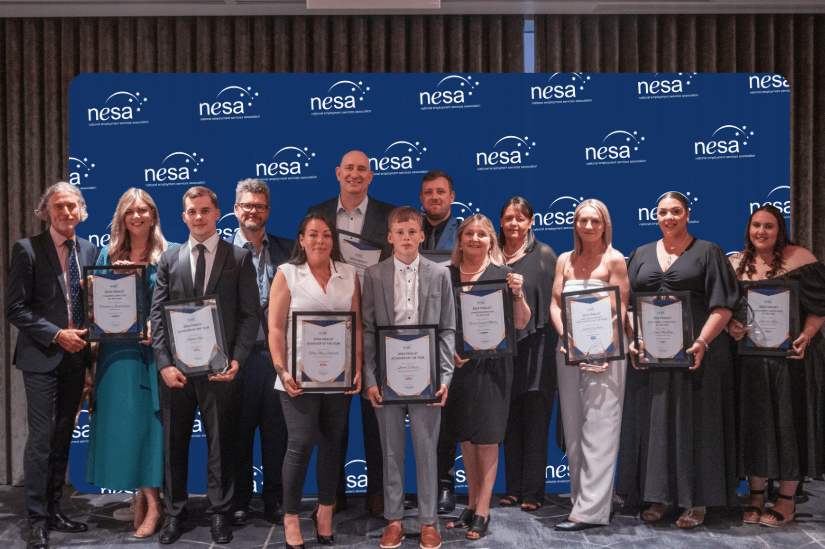The abilityNEWS Daily
The Big Story

(image courtesy The Conversation)
Scheme grew 'too big, too fast' but repair is possible, says Grattan
In what’s likely to become a highly controversial report, the Grattan Institute’s delivered a stark warning: the National Disability Insurance Scheme is at risk of becoming unsustainable unless urgent changes are made.
In a major report released today the respected think tank has called for a fundamental rethink of how disability supports are delivered in Australia — including stronger boundaries around who the NDIS is for, a radical shift in how supports are delivered, and a new National Disability Agreement to unite fractured systems.
“More spending hasn’t delivered better results,” the report concludes, warning that while the NDIS now serves nearly 650,000 people, it excludes most Australians with disability, and too much of the scheme’s funding is going to people whose needs might be better met elsewhere.
Without new money, Grattan argues governments can make the scheme more sustainable — and more effective — by building a strong, non-NDIS support system outside the scheme’s core. This means fully funding “foundational supports” using existing NDIS contributions, not new investment.
The analysis will be welcomed by the federal government, which has promised to moderate NDIS growth to 8% per year by 2026 but is facing increasing flack as it begins to implement cuts as changes have sparked concern among service providers, participants, and advocacy groups.
The Budget projects nearly $1 billion in immediate savings from the NDIS for the upcoming financial year and measures already announced reflect the government's efforts to curb the rapid growth of the NDIS.
With no changes to the scheme, this is projected to cost $52.3 billion in 2025–26 and up to $63.4 billion by 2028–29. While aimed at ensuring the scheme's sustainability, the changes have prompted calls for greater transparency and the establishment of robust alternative support systems to prevent vulnerable individuals from falling through the cracks.
According to Grattan, however, even these measures will not be enough. Without structural change, costs will continue spiralling toward $58 billion a year by 2028, risking the sustainability of the scheme for those who truly need it.
Read More: Grattan’s plan to shift billions — and help more disabled Australians.
Author’s Note
As our Big Story (above) spelled out, the NDIS’ cost has grown so dramatically from initial predictions that the government has now decided to begin cutting. It’s problem is that every cuts hurts an individual - and people who are losing out yell and scream.
The first three stories in today’s Wrap (below) clearly show how this is playing out politically. The first warns the schemes effectively becoming unsustainable; the next about how the coming cuts will disproportionally hit the vulnerable.
Confused about which side to take in the argument the third article (from Australia’s most popular tabloid), simply outlines what the new arrangements mean.
The question is, will the screams be loud enough to force the government to listen?
Nic Stuart, editor, [email protected]
The Briefing

Recognition for Employment - NESA Awards
NESA Awards for Excellence 2025
by NESA
The NESA Awards for Excellence 2025 recognise outstanding achievements in employment services, celebrating individuals, professionals and employers. They aim to promote innovation, inclusion and resilience in helping job seekers overcome disadvantage through sustainable employment.
Co-design Advisory Group: April 2025
by NDIS
The NDIS Co-design Advisory Group convened in April 2025 to guide inclusive planning across community and service sectors. Current members of the Group include: Leah Van Poppel, Dr Leighton Jay, Dr Sharon Boyce, Sam Paior, Skye Kakoschke-Moore (CYDA), Maeve Kennedy (Inclusion Australia), Ross Joyce (AFDO), Samara Rodway (NEDA), Sarah Hawke (DSS),Donna Purcell, NDIA Participant Advocate and Disability Champion, Aaron Verlin, General Manager, NDIA Co-design and Engagement Division
Centre for Accessibility Australia Celebrates 5th Birthday and Releases Birthday Report.
by Centre for Accessibility Australia
Centre for Accessibility Australia marks five years of promoting inclusive digital design since formally launching operations in 2020. Its new report outlines progress in training, resources, and advocacy aimed at removing digital barriers for people with disability.

The Wrap
The areas where one in 10 tweens are on the NDIS
by SMH
One in 10 older children are on the National Disability Insurance Scheme in some parts of the country, indicating families’ reliance on the $48 billion scheme is extending past what is considered the age for early intervention. An analysis of participation data found 10 regional districts, including the NSW Central and Mid North Coasts and Loddon and Barwon in regional Victoria, have about 10 per cent of children aged nine to 14 who are NDIS participants.Nationally, 6.9 per cent of children aged nine to 14 were on the NDIS in March 2025, compared to 5.9 per cent of children aged seven to 14 two years earlier. The increase in older children’s participation poses a challenge for the Albanese government’s attempts to control the scheme’s growth because it shows families are continuing to seek NDIS support even after early intervention pathways wrap up on a child’s ninth birthday.
NDIS travel allowance cuts could leave regional kids without care
by ABC
The agency that manages the NDIS has announced it will cut travel subsidies paid to allied health providers by 50 per cent from July 1. Speech pathologists, occupational therapists, physiotherapists and other allied health professionals in regional Queensland worry it will mean the end for some of their services.
Regional leaders slam decision to cut travel funding for NDIS participants
by Region Riverina
Member for Riverina Michael McCormack and National Rural Health Alliance (NRHA) Chief Executive Susi Tegen have slammed the National Disability Insurance Agency’s (NDIA) decision to cut cost limits and travel funding as part of the Pricing Arrangements and Price Limits (PAPL) scheme following its yearly financial review.
Concerns upcoming NDIS price changes could force providers to stop out of office services
by ABC
Canberra therapy providers say looming changes to the National Disability Insurance Scheme are "devastating", forcing some to reduce their fees. Physiotherapist Kate Caldow says the drastic slashing of travel claims will likely make it harder for people with complex needs to get the care they need.
A choice of paying a mortgage or paying for therapy: threats of NDIS cuts
by Border Mail
A North East woman's fight to stop NDIS cuts has been heard in front of the member for Indi's office. Helen Haines has been asked to advocate for families using NDIS as well as providers as funding cuts are announced.
Major NDIS funding shakeup could hurt vulnerable Australians
by Sky News
A major shake up to NDIS funding could leave vulnerable Australians without vital physiotherapy support. Travel subsidies are being cut by 50 per cent and experts warn up to half of all providers may be forced to walk away from the scheme.
Concerns NDIS cuts to physiotherapy travel will impact regional and remote children with disability
by ABC
The National Disability Insurance Agency (NDIA) is cutting travel allowances for physiotherapists providing services to regional and remote NDIS patients. Families say the funding cuts could limit their children's access to critical outside-clinic disability support.
The Diary

